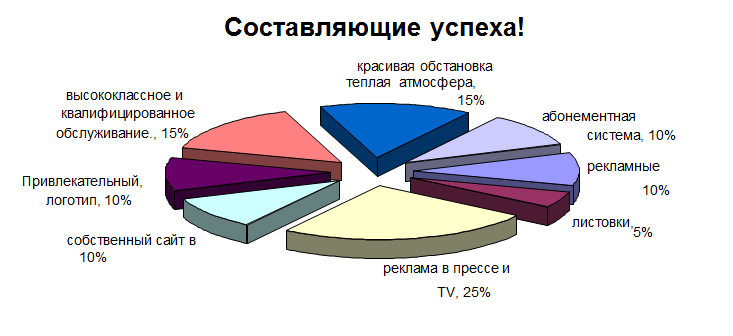Contents

A moving average is a technical analysis indicator that helps level price action by filtering out the noise from random price fluctuations. Parabolic SAR is a leading trend following indicator, and when combined with ADX, it could help traders to capture maximum returns in a trending market. Similarly, an early exit signal can be identified by Parabolic SAR when the parabolas flip onto the opposite side of the trend. This can be used instead of waiting for the +DI and -DI crossovers. When the ADX reading falls below 25 and stays there for an extended period, it means that the market is trendless or basically ranging.


If you can’t identify the most likely market development, it might even be a good idea to capture your profits and close your positions. On most platforms, the default setting for the indicator is 14 bars (or periods.) However, other time frames can also be used, depending on the trader’s preference. J. Welles Wilder’s Direction Movement Index comprises three lines – the ADX Line, PDI Line, and NDI Line. The ADX indicates the strength of the price trend while the Positive and Negative Directional Indicators measure the uptrend and downtrend. What this means is simple – ADX won’t give you real-time trend strengths.
Because the ADX measures the intensity of the trend the RSI can help with entries and exits by giving a time based component to the trend. In this case traders should wait for confirmation of a downtrend by an RSI reading of less than 30, or confirmation of an uptrend by an RSI reading above 70 before placing an order. ADX indicator values of below 25 show that the underlying market is not trending. This is basically a market that requires range-bound plays. As an oscillator,RSIdelivers overbought and oversold trading signals. An RSI reading of above 70 implies overbought conditions, whereas a reading of below 30 implies oversold conditions.
FII/DII Data: Leading Indicators of Stock Market
The trend can be either up or down, and this is shown by two accompanying indicators, the negative directional indicator (-DI) and the positive directional indicator (+DI). Therefore, the ADX commonly includes three separate lines. These are used to help assess whether a trade should be taken long or short, or if a trade should be taken at all. This indicator may also help traders determine the direction to trade, as crossovers between the lines are also sometimes used as trade signals to buy or sell.
During the divergence, you can see the strengthening trend, its movement is getting more powerful – there are changes in the slope angle. The point that the arrow points to is where the +DI and -DI lines swapped. It’s too early to open a trade as it may be a false breakout. At this point, it makes sense to analyze the position of the +DI and -DI lines relative to each other and see whether patterns are starting to form.
The Average Directional Index can be found in many top trader’s arsenals, generating large amounts of profit for those that put it to regular use. ADX is simply the mean, or average, of the values of the DX over the specified Period. Table of Contents Volume Rate of Change Definition 1 – Why should you pay attention to volume? 2 – The Volume Rate of Change Indicator 3 – Interpreting the Volume ROC 4 – How to use the volume rate… I largely attribute this to the volatility of Bitcoin and less to do with a failure of the indicator. You can start to see as a standalone indicator, the ADX is displaying a few issues.
Open a short position 3-4 candles after the crossover of the +DI and -DI divergence. 40-50% is a strong trend that is gaining price momentum. Here, you can add to a position if there are no opposite signals according to other tools. However, you have still to manage risk of a price reversal. 0-20% is a market equilibrium, or “not in a trend.” Traders aren’t rushing to place orders and increase transaction volumes.
A Must-ReadeBook for Traders
Finally, it is also often used, as other momentum indicators are, to indicate a potential market reversal or trend change. One of the essential tools used for technical analysis in securities trading is the ADX. Its primary incentive is to determine when the price is trending strongly. In many cases, it is considered to be the ultimate trend indicator.

During this 3 killer ways to ignite your affiliate commissions, traders can alter their trading strategies or wait for a breakout to take a position. ADX stands for Average Directional Movement Index and can be used to help measure the overall strength of a trend. The ADX indicator is an average of expanding price range values. The ADX is a component of the Directional Movement System developed by Welles Wilder.
The Average Directional Index (ADX) Formulae
It is a set of MAs with different periods that show four stages of a trend – beginning, active phase, weakening trend, and flat. The ADX line gives the most accurate signals after range consolidation – when the price exits the flat range conditions. During sharp price movements against the trending market and when the main direction of price movement changes, the number of false signals increases. When markets are ranging, different trading techniques need to be applied than that of a strong trend. The ADX can indicate when a trend is absent and a market is likely to continue to chop and range.
- The red arrow on the chart indicates the point of opening the trade.
- The biggest profits are achieved by trading the strongest trends.
- Designed by Welles Wilder for commodity daily charts, the ADX is now used in several markets by technical traders to judge the strength of a trend.
- This of course is completely your call on what ADX reading will trigger you to trade.
A buy order in a ranging market will be when the price is drifting lower, with an ADX reading of below 25, and when the RSI is showing oversold conditions. Similarly, a sell order can be placed when the price is edging higher, with an ADX reading of below 25 and when the RSI is showing overbought conditions. An uptrend is in place when the +DI is above the -DI; whereas a downtrend is in place when -DI is above the +DI.
The Average Directional Index is among the most popular and efficient indicators for this purpose. We’ll look at its advantages and disadvantages and how you can use it to enhance your trading strategy. The two indicators are similar in that they both have lines representing positive and negative movement, which helps to identify trend direction. The Aroon reading/level also helps determine trend strength, as the ADX does. The calculations are different though, so crossovers on each of the indicators will occur at different times.
By doing this might help in achieving better results in the real-world https://business-oppurtunities.com/. If you forgot to follow any of the coding parts, don’t worry. I’ve provided the full source code at the end of this article.
It is common investing wisdom that detecting and trading in the direction of a strong trend is a profitable strategy with minimal risk exposure. This is why ADX is one of the most popular indicators among traders of all levels. Functionally, the ADX is an excellent indicator for identifying the prevailing conditions in the market. Traders can easily determine whether a market is ranging or trending, and then apply the appropriate technical trading strategy.
How to Use Average Directional Index (ADX)
This is also confirmed by the candlestick analysis while trading forex- red candlesticks have shorter bodies with each subsequent candlestick. Close your position while trading forex when you see the first green candle. It’s better to add other direction indicators or add Price Action elements to the strategy. If the value is 0-20%, it means the trend strength is insignificant. The Average Directional Index is a technical analysis indicator which is used by the traders for determining the strength of the ongoing trend.
For the remainder of this article, ADX will be shown separately on the charts for educational purposes. The ADX indicator is composed of a total of three lines, while the Aroon indicator is composed of two. TR is the greater of the current high – current low, current high – previous close, or current low – previous close. In this step, we are going to create a list that indicates 1 if we hold the stock or 0 if we don’t own or hold the stock.
Altogether, they highlight the direction of the trend and help determine its strength. He’s a non-directional commodity trader who relies on the ADX to help him analyze securities. Once the ADX value rises from its lows, the market is considered to be moving toward a strong trend.
